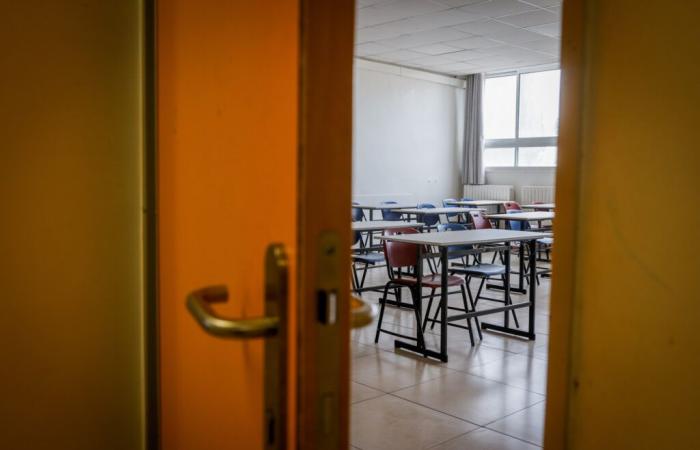Israel’s school system faces a shortage of qualified English teachers, with hundreds of vacant positions and a high percentage of existing teachers who have not received adequate training, according to the Education Ministry.
Of the 19,000 English teachers in Israel, about 40 percent have no formal training in teaching the language, and the system is currently short of 660 teachers, said Iris Biton, deputy director general of the Ministry of English. Education, during a meeting of the Knesset Education Committee this week.
To teach English in Israeli public schools, a teacher must hold an Israeli teaching license and diploma, but these qualifications do not require specific training in English. As a result, teachers trained in other disciplines and proficient in English are recruited to teach the language.
Receive our daily edition for free by email so you don’t miss the best news. Free registration!
At the committee meeting, initiated by MK Yasmin Fridman (Yesh Atid), several solutions were proposed to resolve what is seen as a crisis in English teaching in Israel, including programs to attract more of foreign English-speaking teachers.
According to Biton, a national program to improve English teaching was launched in 2017. Although it showed positive results, it was suspended in 2020 during the COVID-19 pandemic lockdowns and n was never fully restored.
Another program, called TALMA: The Israel Program For Excellence in English, operational since 2014, brings in English speakers from abroad to teach in summer programs, mainly in the outskirts of the country. However, bureaucratic constraints prevent this program from bringing in non-Israelis to officially teach during the school year.
“Over the past ten years, we have brought more than 2,500 Jews from around the world to teach English to young people, but it is still not enough. We must increase the number of teachers and allow the arrival of legally qualified teachers,” explained Ido Mahatzri, director of TALMA, during the commission.
Biton acknowledged that currently, “it is impossible to employ someone who is not an Israeli citizen” as a teacher in the school system, barring individual exceptions. However, she said the ministry is working on a program, in collaboration with the Population, Immigration and Borders Authority (PIBA), to make it easier for qualified foreign teachers to obtain work visas.
“The need for qualified English teachers will always remain. This is a recurring problem,” underlined Tziona Levi, head of the languages division at the Ministry of Education.
She emphasized technology programs and online learning as a way to alleviate the problem, an idea rejected by MP Yossef Taieb (Shas), chairman of the committee, who said that after COVID. “Post-COVID, we have seen that hybrid education works partially, if at all, especially in ultra-Orthodox and Bedouin communities, who don’t always have access to the internet,” he said.
The meeting concluded with the recommendation to seek additional solutions to improve the teaching of English in schools, including recruiting Israelis who have studied or worked abroad and are proficient in English, establishing programs where English-speaking teachers teach non-linguistic subjects in English, hiring employees from the language sector high-tech as part-time teachers, recruiting English-speaking retirees, and encouraging high school students excelling in English to serve as tutors for lower grades.






